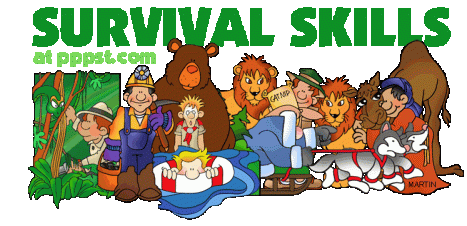Emergency Prep for lives that have A LOT of them!
Friday, September 8, 2017 56 Comments
When SHTF is a DAILY Occurrence . . .
and “Stuff Hits The Fan” repeatedly!
© Madelyn Griffith-Haynie, CTP, CMC, ACT, MCC, SCAC
From the Executive Functioning Series“Preparedness, when properly pursued, is a way of life,
not a sudden, spectacular program.” ~ Spencer W. KimballTime to revisit some older content . . .
(Updated content from a post originally published in February 2015)Given what’s going in Texas, Louisiana and Florida during this Hurricane Season, there are a lot of “preparedness” articles to be found around the blogging universe these days.
THIS one’s a little different.
The first half of this article is a good disaster-prep reminder you probably will NOT see many other places – but the second half offers a bit of help toward preventing those “emergencies” in our everyday lives.
Lots to learn from the Survivalists
©Phillip Martin – artist/educator Found HERE
New to the acronym? “SHTF” is a Survivalist abbreviation for Stuff Hits The Fan (with another 4-letter “S” word replacing the one I used to keep things family-friendly).
As with any subgroup, Survivalists run the gamut from the extreme through the consumed by anxiety to the worried . . . all the way to the lower end of the scale: those who are merely cautious.
At base, many of them are no different from savers and planners in any other arena — except that Survivalists larder physical supplies and foodstuffs instead of cash reserves in more traditional savings formats.
They’ve lost faith in the system.
That’s something that many of us here in Alphabet City share with them. Except the system we have a hard time trusting anymore is The Mental Health Care System — which includes hospital administrators and health “professionals,” as well as the legislators charged with protecting the rights of the many in our society who have “invisible” disabilities.
It makes sense to me, given the probabilities,
that we ALL might be wise to expect the best
but prepare for the worst. just like those Survivalists.Global catastrophe’s aside, the “worst” here in Alphabet City seems to happen A LOT more frequently than in the neurotypical population — and history has proven repeatedly that we can expect precious little help from the current state of the Mental Health [lack of an effective] System.
Let’s not spend time going over all of the ways in which the system is broken and desperately needs changing. Despite the fact that I’ve been ringing that bell for over 25 years now – along with a great many other Mental Health advocates – things continue to worsen nonetheless.
Instead, let’s focus on what we might think about putting in place to, like good Scouts say, BE PREPARED.













